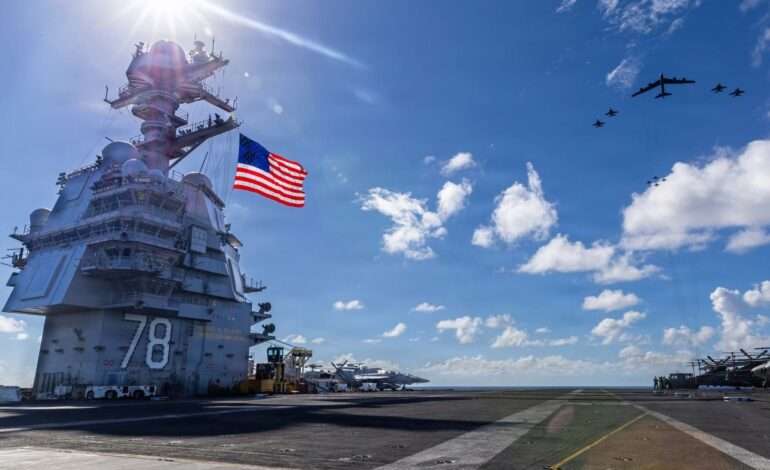
Trump eyes Nobel Peace Prize while escalating pressure on Venezuela
US President Donald Trump may be positioning himself as a contender for the Nobel Peace Prize, but his recent remarks and military maneuvers are sending mixed signals about a potential confrontation with Venezuela. While he ramps up pressure on Venezuelan President Nicolas Maduro, Trump is framing the conflict not as regime change but as an extension of his administration’s aggressive war on drugs.
Secretary of State Marco Rubio has publicly branded Maduro as the leader of the Cartel de los Soles, which Washington considers a narco-terrorist organization. This effort reframes the Venezuelan president as a criminal figure rather than a political adversary—an approach that could justify escalating U.S. action without triggering backlash from Trump’s MAGA-aligned base, which remains deeply wary of foreign military interventions after Iraq and Afghanistan.
Trump has long criticized military entanglements abroad, but his administration is applying intense intimidation tactics through naval and air deployments. When asked whether a ground invasion of Venezuela was possible, Trump offered a deliberately ambiguous response: “I don’t rule out anything.” He added, “We just have to take care of Venezuela.”
Over the weekend, the Department of War deployed the USS Gerald Ford, the U.S. Navy’s largest aircraft carrier, along with its strike group to the Caribbean, placing significant firepower close to Venezuelan territory. Roughly 15,000 U.S. troops have been repositioned to the region, while surveillance and armed drones are reportedly operating overhead. Trump previously confirmed he had authorized the CIA to conduct operations inside Venezuela.
The administration is also linking its approach to broader domestic concerns, including illegal migration and narcotics trafficking. Trump alleges that Venezuela “emptied their prisons” into the U.S. and claims significant drug flows originate from the country—assertions that help frame intervention as a national security necessity.
Despite the escalating military posture, Trump has kept diplomatic channels open, suggesting he may be willing to speak with Maduro, who faces a $50 million U.S. bounty. However, he downplayed the idea of formal negotiations, saying, “I talk to anybody; I talk to you.”
Maduro, under pressure and accused by previous U.S. administrations of election fraud and human rights violations, responded with a symbolic plea for peace, briefly singing John Lennon’s “Imagine” during a public address.
Meanwhile, Trump’s anti-drug campaign continues aggressively. Since September, U.S. forces have bombed at least 22 suspected drug-transport vessels, killing more than 80 people. Secretary of War Pete Hegseth said the current deployment, dubbed Operation Southern Spear, marks a major escalation in the administration’s efforts.